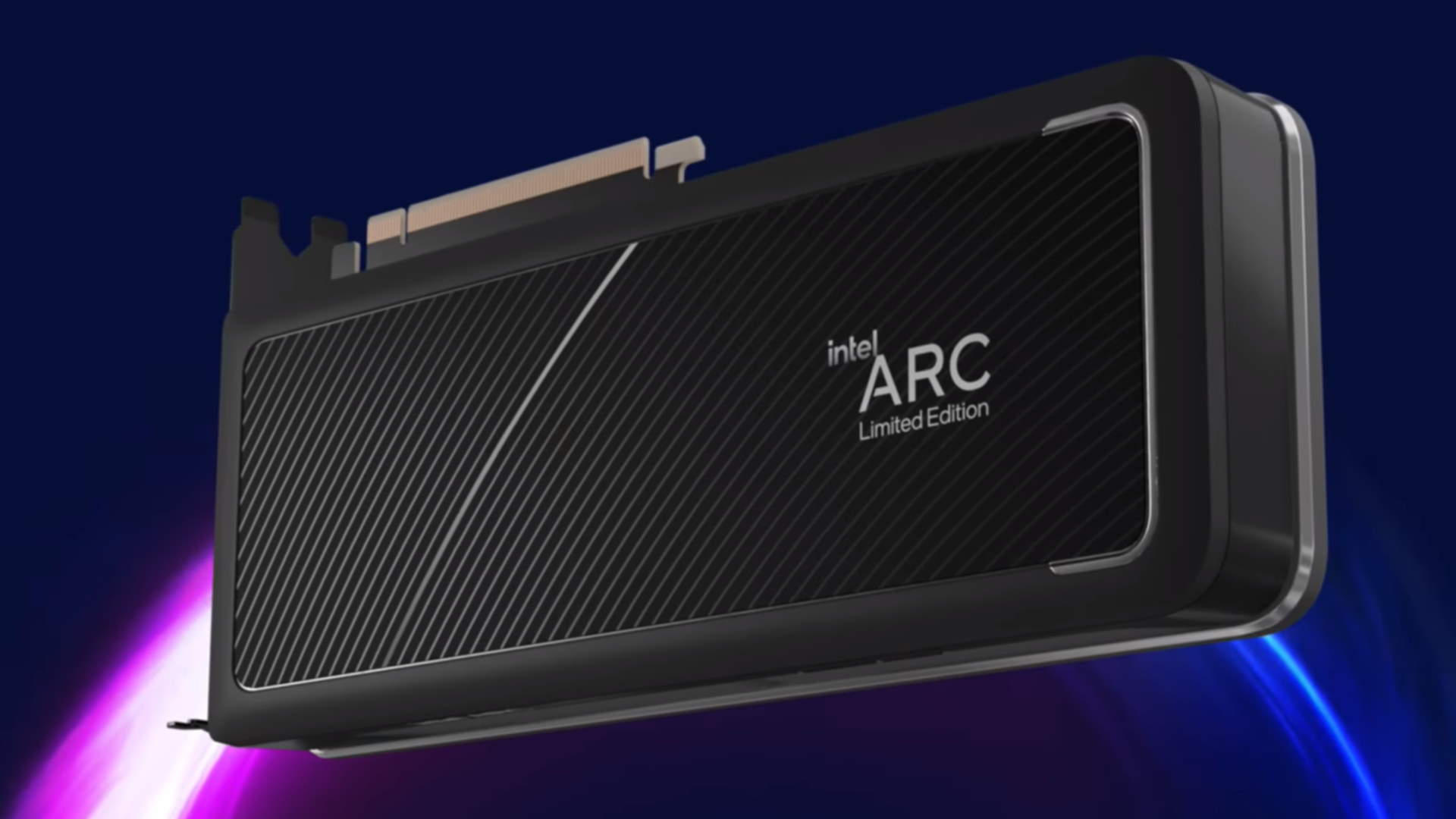Intel's Arc GPU launch appears to have gone from headache to migraine
Could it get much worse for Intel's new GPU release? It appears it can.

Intel's Arc graphics card launch is not going swimmingly. The CPU giant was always going to have a tough time with its new gaming GPU launch, but inconsistent performance is causing it a headache, though that does not appear to be the end of its problems. Even before Intel's discrete GPUs have reached Europe or the Americas, a report suggests Intel's partners are hesitating.
"I have asked some dealers, potential distributors and also manufacturers in the European area about Intel’s Arc cards and the plans of these companies in this regard. However, there was predominantly little to no interest in even embarking on the adventure with this new product," says Igor of Igor's Lab.
The report, which claims to be the sentiment from sources close to the matter, states Intel does not want to guarantee prices and it isn't offering as competitive a package for RMAs, which could all be seen to make Arc appear a riskier investment. Intel may be attempting to push Alchemist to system integrators and OEMs in a bid to circumvent the challenging retail market.
"At least one of the big board partners has even stopped the production of Intel cards completely ('due to quality concerns')," the report later says.
That's certainly not a great sign of things to come for the Alchemist generation of GPUs, which is only the first of four named generations for Intel Arc graphics, the upcoming generations being Battlemage, Celestial, and Druid. This is further to another report from YouTuber Moore's Law Is Dead that suggested similar issues for Intel's Alchemist GPUs.
Of course, we can't be 100% certain that either report paints the whole picture, but we've personally not heard many positives from the launch so far.
The only card so far released for the desktop is Intel's Arc A380, a budget GPU that is available in China. Higher-end graphics cards are expected at a later date.
The biggest gaming news, reviews and hardware deals
Keep up to date with the most important stories and the best deals, as picked by the PC Gamer team.
Though a widespread inventory issue may be another factor causing the company's migraine to worsen.
Intel has reported that a big chunk of cash is caught up in "inventory reserves and roadmap investments", and that includes its Arc GPUs. AXG, the Intel internal group responsible for Intel Arc, has been running at a near half-billion dollar loss in the past three months, up on the previous quarter's $168M loss.
That's not unusual for a big new product launch, especially one that's been delayed such as this, but it does come at a time when inventory is generally up across the board. This increase in inventory for not just Intel's GPUs, but also for other major companies, such as AMD.

Best CPU for gaming: The top chips from Intel and AMD
Best gaming motherboard: The right boards
Best graphics card: Your perfect pixel-pusher awaits
Best SSD for gaming: Get into the game ahead of the rest
"As it relates to inventory as we look at the current situation, given some of the COVID lockdowns and things in the second quarter, I think there was a bit of build-up in PC inventory," AMD's CEO Dr. Lisa Su said during a recent earnings call.
This will have the knock-on effect of making most in the GPU supply chain somewhat more risk-averse, and that could mean Intel's push into graphics has arrived at exactly the wrong time.
I really do hold out hope for Intel's continued interest in graphics, however. This generation isn't exactly what we'd hoped, but a first-generation GPU architecture was always going to run into some significant issues. If Intel can get Arc off the ground and compete with AMD and Nvidia even in budget GPUs, that should make the market that much more competitive. Usually, that means cheaper products for end customers, and we could definitely do with more of that.

Jacob earned his first byline writing for his own tech blog. From there, he graduated to professionally breaking things as hardware writer at PCGamesN, and would go on to run the team as hardware editor. He joined PC Gamer's top staff as senior hardware editor before becoming managing editor of the hardware team, and you'll now find him reporting on the latest developments in the technology and gaming industries and testing the newest PC components.

